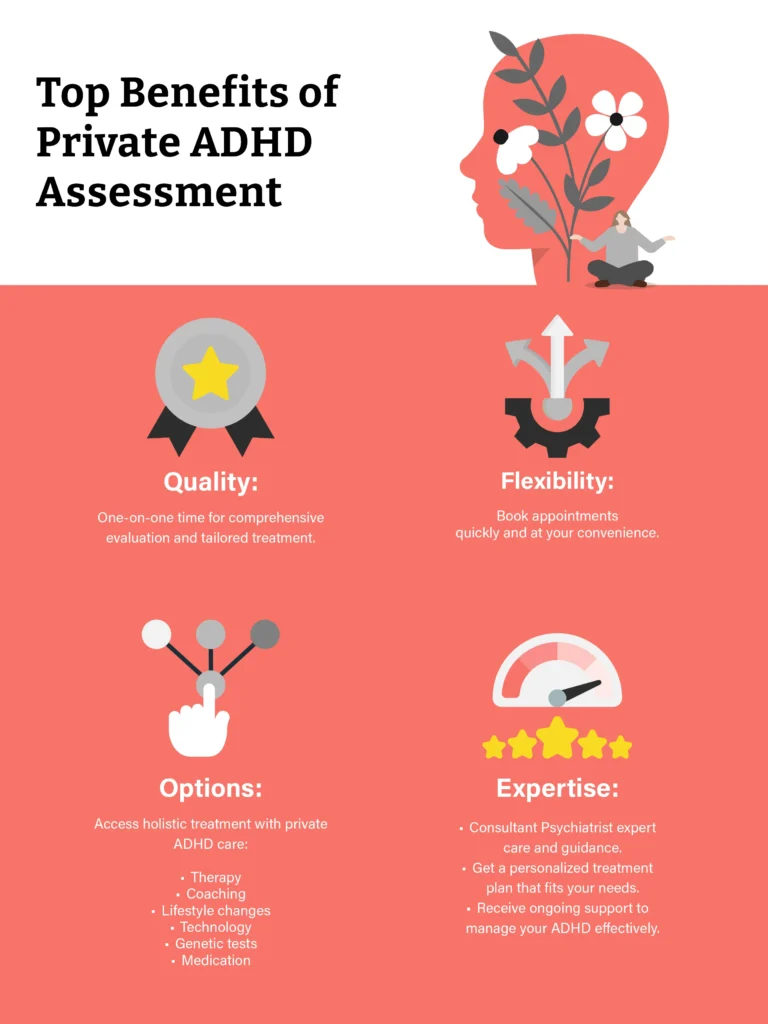For ADHD to be effectively managed, it is essential to understand its complexities, particularly when it comes to younger populations. Online ADHD Test offers themselves a convenient and private way to begin the diagnostic process as digital health resources increase. By examining the validity, benefits, and drawbacks of online ADHD testing, this comprehensive review seeks to provide parents, educators, and mental health practitioners with the knowledge they need to make wise decisions about this easily accessible tool for education.
The Convenience of Online ADHD Tests
The convenience of online ADHD tests is a significant advancement in the initial steps toward diagnosis and management of ADHD. The ability to access these tests from anywhere at any time has eliminated the need for individuals to navigate through traffic or endure lengthy waiting periods just to get a preliminary assessment of potential ADHD symptoms. This flexibility allows for an exploration of diagnosis from the comfort of one’s home or any location with internet access, marking a departure from traditional barriers to initial mental health assessment.
Furthermore, a notable advantage of online ADHD tests is the level of anonymity and privacy they offer. Many people worry about losing their privacy and possible invasion of personal space when considering seeking medical advice. Online tests alleviate these fears by providing a means to take significant steps toward understanding one’s condition without the immediate pressure to disclose sensitive personal information. This aspect is particularly appealing for those who value their privacy and wish to approach their health concerns discreetly.
Moreover, the efficiency of online ADHD tests as a time-saving preliminary step cannot be overstated. Traditional assessment and diagnosis processes can be lengthy, involving multiple appointments and potentially long wait times. In contrast, online ADHD tests offer a quick and efficient alternative, taking only minutes to complete as opposed to the hours that might be spent on in-person evaluations. This stark contrast in time investment highlights the practical benefits of online tests in today’s fast-paced world, where saving time while seeking important health insights is greatly valued.
Accuracy and Reliability of Online ADHD Tests
- Scientific Foundation
Reputable online ADHD tests are grounded in a scientific background, developed following stringent clinical criteria. Their development is based on research-based assessments, adding a layer of credibility to their accuracy.
- Preliminary Screening Capability
While they do not substitute professional advice, these tests offer a reliable screening mechanism. They prompt individuals to consider further evaluation and treatment, serving as a useful first step in the diagnosis pathway.
- Guiding Next Steps in the Diagnostic Journey
Online ADHD tests not only provide scores but also direct actionable advice, encouraging users to consult with healthcare professionals. This guidance can demystify the path towards seeking help.
- Case Studies and Testimonials
Case studies and testimonials offer powerful insights into how digital health tools aid early intervention and support. Real-life stories highlight the transformative impact of accessible online resources on individuals’ well-being, emphasizing their significance in health management.
Limitations of Online ADHD Tests
- Not a Replacement for Professional Medical Advice
The most significant caveat to online tests is their inability to diagnose. Articulating to the audience is crucial to manage expectations and avoid misunderstandings about the role of these tests in healthcare.
- The Risk of Misinterpretation
Without the important context and expertise a healthcare provider could provide, there’s a potential for misinterpretation of test results. We’ll explore this and explain why professional assessment remains a critical next step.
Choosing a Reliable Online ADHD Test
- Selection Criteria
Navigating the sea of online resources can be daunting. We’ll provide a checklist of criteria to consider when choosing an online ADHD test, emphasizing the importance of selecting one that aligns with best practices.
- Identifying Red Flags
Highlighting warning signs that might indicate an online test is not to be trusted is equally as important. Ensuring our readers are vigilant about the credibility of the resources they use is crucial.
For those who wish to deepen their understanding and gain more insight into ADHD management and the benefits of screening, we’ve curated a selection of articles and personal stories. These additional resources provide a broader perspective on navigating ADHD, offering expert advice, and sharing experiences from those who’ve walked this path. Visit here for related post for a compilation that illuminates the challenges and triumphs of living with ADHD.
Conclusion and Responsible Utilization
Finally, we attempt to strike a compromise between the ease of use of the online ADHD test and the necessary prudence. These digital tools are essential in guiding people toward a professional diagnosis, but they are only the first step in an extensive, expert-driven assessment and treatment plan. We want to help our readers in two ways. Firstly, inform about accessible digital health resources like online ADHD tests for convenient and private assistance. Secondly, using these resources must support medical professionals’ advice rather than replace it, emphasizing awareness and accountability. Merging digital tools with clinical expertise advocates for holistic ADHD management, prioritizing convenience, discretion, and accuracy for improved health outcomes.






